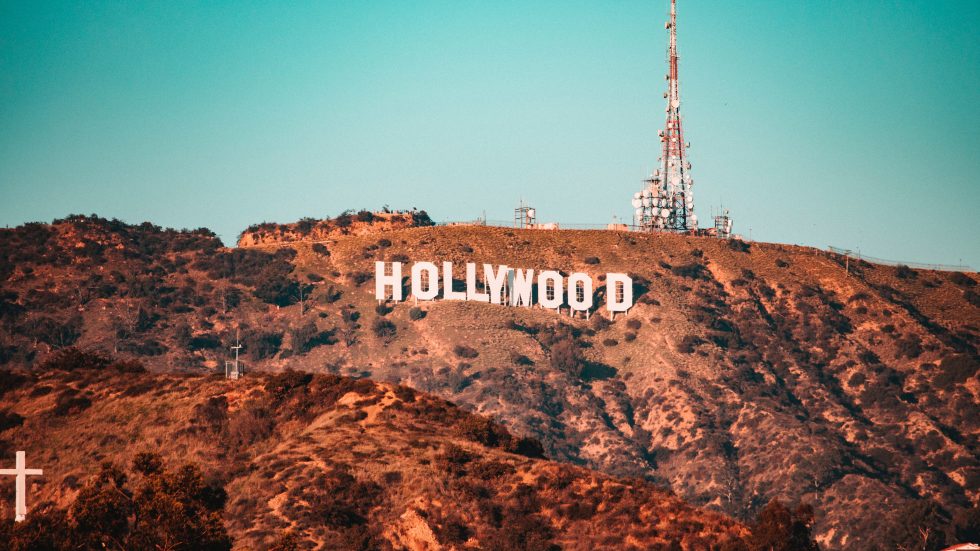 Unsplash
Unsplash Hollywood is known for bringing together award-winning directors, brilliant screenwriters and great actors who star in worldwide successful films and series. But this time the film industry is not in the spotlight for renowned productions, but for their absence.
On May 2, the Writers Guild of America (WGA), a union that represents around 11,500 screenwriters, decreed a strike for all screenwriters working in television, cinema and series, in a request for better remuneration, fairer working conditions with the arrival of streaming and rules for the use of artificial intelligence.
With no agreement between the screenwriters and the Alliance of Motion Picture and Television Producers (AMPTP), which represents the studios, the Screen Actors Guild-American Federation of Television and Radio Artists (SAG-AFTRA), the Hollywood actors union, announced on July 13 their support. Over 160 thousand artists crossed their arms.
This is the market´s greatest strike in 63 years. With this, Hollywood productions are stopped indefinitely.
Impacts
With no perspective of coming to an end soon, the strike has impacted the industry. Shows like Saturday Night Live and The Tonight Show are suspended. Several series, such as Stranger Things, The Last of Us and the Game of Thrones spin-off have paused their productions. And the feature films Mission: Impossible – Dead Reckoning Part 2 and Beetlejuice – 2 left the film sets temporarily. Some productions that had already been finalized chose to postpone the launch date, since the actors cannot attend publicity events or grant interviews.
The financial impact cannot yet be calculated, but economists project a loss of around $30 million per day. In Brazil, the strike can serve as an example for the types of contracts signed, according to a statement by journalist Rodrigo Salem on the podcast Café da Manhã.
The list of claims
The effects of the advancement of streaming and the arrival of artificial intelligence (AI) in the film industry, which is still adapting to the new developments, generate much of the dissatisfaction of professionals, who demand:
AN INCREASE IN RESIDUAL EARNINGS (PERCENTAGE OVER THE PRODCUTIONS´ SALES AND EXHIBITIONS) FOR SCREENWRITERS. Screenwriters would earn a lot when their films or series were sold by studios and aired on television – which is not happening now, on the grounds that there is no way to measure streaming audience.
2% FOR ACTORS. Like screenwriters, actors are asking for 2% of the value generated from the success of each production they participate in.
INCREASE IN SALARIES. Screenwriters state that salaries are frozen. Over the last decade, the value adjusted to inflation fell by almost 23%.
CHANGES IN THE WORKING MODEL. The series have become shorter, with an undetermined time between them. With exclusive contracts, writers and actors claim that they are stuck with the productions and earn less than before.
PROTECTING AND REGULATING THE USE OF AI. Concerned about the quality of the texts, screenwriters ask for rules for the use of artificial intelligence in writing. Actors, on the other hand, demand regulation of the use of their image.
What the studios say
AMPTP claims that in 2021, screenwriters received a record $500,000 residual pay. In addition, it declares that the strike could bring economic difficulties to thousands of people who depend on this industry.
Some studios told The New York Times that the time without movie showings during the pandemic and the migration from paid TV to streaming led to a drop in productions, making it difficult to offer higher salaries.
| THE HISTORY OF HOLLYWOOD STRIKES The last simultaneous strike between screenwriters and actors was in 1960, demanding residual payments for the exhibition of their films on TV. It lasted 42 days and led to rights such as health care plans and pension schemes. In 1980, actors went on strike again, requesting participation in the profits of the distribution of their films for DVD and paid TV. This took around 90 days to end. The longest strike of screenwriters lasted 100 days, from 2007 to 2008. They asked for increased residual rates for DVD sales. Television projects were cancelled and films were postponed. The financial loss was of 2 billion dollars. |
Sources: BBC, G1, Exame, Forbes, Omelete, Brazil Journal and Café da Manhã.








